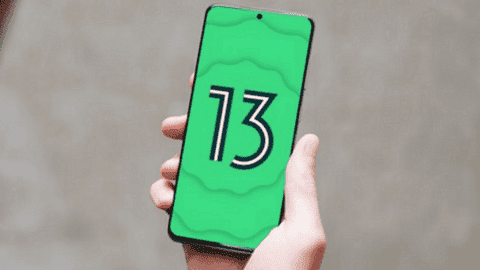Starting today, Google will launch the official version of Android 13 for Pixel phones. This Android update further enhances the Material You theme introduced in Android 12. Furthermore, it improves existing privacy controls and introduces the ability to copy and paste on some Android devices. With personalization, Google has introduced the ability to customize non-Google apps to match the themes and colours that have been set. It makes user-designed Materials more cohesive in their smartphones. It also includes updates based on per-app language settings and offers an updated media player and bedtime mode.
For privacy, Google adds more granular permission settings, allowing users to share only specific photos and videos. This appears to be much better than granting full access to the media library. Android 13 will also automatically clear the clipboard history after a period of time. This means that the user must grant the app permission to send notifications. This feature will not be active by default and users have to turn it on.
Finally, there are many other features designed to make everything work more smoothly. These include the ability to copy and paste content across Android and Chromebook devices, similar to Apple’s Universal Clipboard, which originally launched with iOS 10. Android 13 is more private and personal, designed for use across devices. Your device will be updated to Android 13. For more information, visit android.com/13.
New features include:
– More themed app icons that match your phone’s wallpaper colour
– Media player with new album art and interesting play bar
– Different language settings can be specified for each app
– Better control over when apps can send you notifications
– Stream instant messaging apps directly to Chromebooks
Here are the top 13 highlights of the Google Android 13
Android 13 has an evolved look and feel based on Material You. Users can customize non-Google apps to match the phone’s wallpaper theme and colours, making the home screen more cohesive and user-friendly.
For the many Android users who speak more than one language, Google added a top-level feature request. Users can assign a specific language to each application, which keeps the phone system in one language and each application in a different language.
Android 13 features an updated media player that customizes its appearance based on the music or podcast you’re listening to. For example, when listening to music, the media player highlights album artwork and the play bar dances to the song being played. It even works with media played through Chrome.
The user’s health has always been an important theme for Android – getting enough sleep is key! Android 13 allows further customization of Bedtime Mode by dimming wallpapers and dark themes. These on-screen options help the eyes adjust to the dark when it’s about to go to bed and fall back asleep when the user wakes up in the middle of the night to check their phone.
Gone are the days of having to share an entire media library with an app. In Android 13, users can only choose the specific photos and videos they need to access.
Prevent any unnecessary access to the clipboard. Android automatically clears the clipboard history after a period of time if the user copies sensitive data such as email addresses, phone numbers, or login credentials on the device.
Android 13 helps control notifications and ensures that users only receive required alert notifications. Downloaded apps now require explicit permission from the user ID to send notifications, instead of allowing notifications by default.
Others are
Using Spatial Audio feels immersive. On supported headphones that support head tracking, Spatial Audio changes the sound source based on how the user turns their head, providing a more immersive listening experience on an Android phone or tablet.
When using a laptop, users don’t want to interrupt their workflow to respond to phone chats. Soon, users will be able to stream the Messages app directly to Chromebooks so they can send and receive messages from their laptops.
Android 13 features Bluetooth Low Energy (LE) audio, a new Bluetooth audio standard that offers lower latency compared to classic audio. This allows users to hear audio that is better synchronized with the sound source, reducing latency. With Bluetooth Low Energy (LE) audio, you can also enjoy the enhanced audio quality and broadcast audio to multiple devices simultaneously.
Users will soon be able to copy content (such as URLs, images, text or videos) from their Android phones and paste them onto their tablets. Alternatively, you can start on a tablet and paste it onto your smartphone.
With Android 13, multitasking on a tablet is even much easier. With the newly updated taskbar on your tablet, you can see all your apps at a glance. Furthermore, users can easily drag and drop any app in your library into split-screen mode.
Android tablets register the palm and stylus as separate touches. So, whether you’re writing or drawing on a tablet, you’ll encounter fewer accidental stray marks because you just need to keep your hand on the screen.
Android 13 includes many other features, such as HDR video support for third-party camera apps, an updated media output switcher, a Braille display for Talkback, and more. It goes beyond mobile phones to provide users with a range of connected experiences on other devices such as tablets and laptops. Android 13 is rolling out to Pixel devices starting today. Later this year, Android 13 will also be available on devices from Samsung Galaxy, Asus, HMD (Nokia phones), iQOO, Motorola, OnePlus, OPPO, Realme, Sharp, Sony, Tecno, Vivo, Xiaomi, and more.

